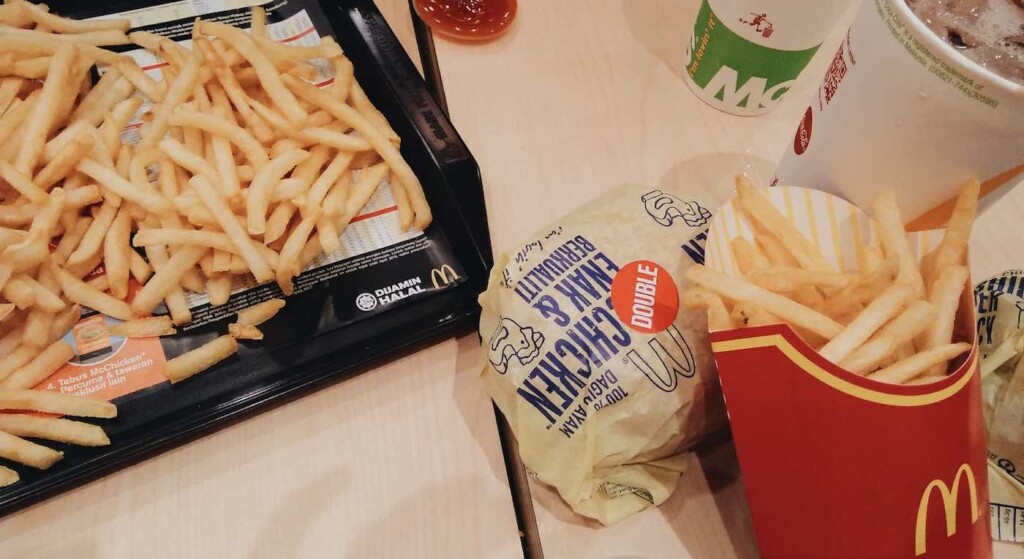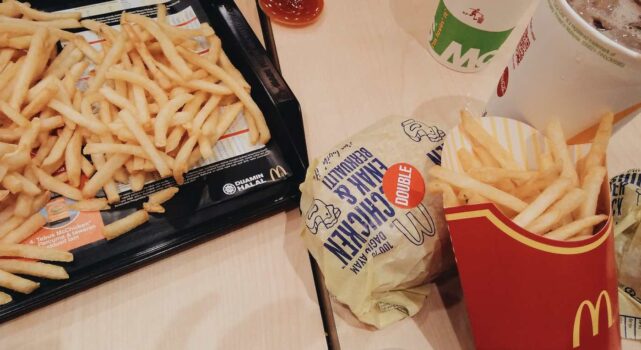
Compulsive consuming and weight problems could also be triggered by a selected intestine micro organism, suggests a brand new research—and the breakthrough could result in new therapies to deal with the issue of meals habit.
The micro organism recognized by a global analysis workforce is related to each people and mice growing an habit to meals that may result in weight problems. Additionally they recognized micro organism that play a helpful position in stopping meals habit.
“Quite a few components contribute to meals habit, which is characterised by lack of management over meals consumption and is related to weight problems, different consuming issues, and alterations within the composition of micro organism within the intestine microbiome,” mentioned Professor Elena Martín-García, of Pompeu Fabra College, Spain.
“Till now, the mechanisms underlying this behavioral dysfunction have been largely unknown.”
Professor Rafael Maldonado, who leads the college’s Laboratory of Neuropharmacology, mentioned: “These outcomes from our research could enable us to establish new biomarkers for meals habit and, most significantly, to guage whether or not the helpful micro organism could possibly be used as potential new therapies for this obesity-related conduct, which, at current, lacks any efficient therapeutic approaches.
“Potential new therapies might contain utilizing helpful micro organism and dietary supplementation.”
The workforce used the Yale Meals Dependancy Scale to diagnose meals habit in each mice and people. It accommodates 35 questions for individuals to reply, and these can be grouped into three standards to be used in mice: persistent food-seeking, excessive motivation to acquire meals, and compulsive conduct.
MORE GUT MIRACLES: Edible Carbon Beads Can Reduce Cirrhosis Liver Disease By Restoring Gut Microbiome
Throughout the intestine micro organism of mice that have been and weren’t hooked on meals, researchers discovered a rise in micro organism belonging to a bunch known as the Proteobacteria phylum and a lower in micro organism belonging to the Actinobacteria phylum within the food-addicted mice.
These mice additionally had a lower within the quantity of one other sort of micro organism known as Blautia from the Bacillota phylum.
88 sufferers have been categorized into those that have been addicted or not hooked on meals. Just like the findings in mice, decreases in Actinobacteria phylum and Blautia have been seen in people who have been food-addicted, together with will increase in Proteobacteria phylum.
Prevention on the horizon
“The findings in each mice and people prompt that particular microbiota could possibly be protecting in stopping meals habit,” said Prof. Martín-García. “Particularly, the robust similarities within the quantity of Blautia underlined the potential helpful results of this explicit intestine micro organism.”
“Due to this fact, we investigated the protecting results of oral administration of lactulose and rhamnose, that are non-digestible carbohydrates often known as ‘prebiotics’ that may improve the quantity of Blautia within the intestine.
“We did this in mice and located that it led to a rise within the abundance of Blautia in mice feces—in parallel with dramatic enhancements in meals habit.
“We noticed related enhancements after we gave the mice a species of Blautia known as Blautia wexlerae orally as a probiotic.
“The intestine microbiota signatures in each mice and people recommend doable non-beneficial results of micro organism (belonging to the Proteobacteria phylum) and potential protecting results of accelerating the abundance of Actinobacterial and Bacillota towards the event of meals habit.”
GET GUT AND BRAIN HEALTHY: Probiotics Enhances Cognitive Abilities Through the Gut: A Key to Aging Brain Health
Prof. Martín-García says the findings present how micro organism within the intestine affect mind perform and vice versa.
“We’ve got demonstrated for the primary time a direct interplay between the intestine composition and mind gene expression, revealing the complicated and multifactorial origin of this essential behavioral dysfunction associated to weight problems.
“Understanding the crosstalk between alterations in conduct and micro organism within the intestine constitutes a step ahead for future therapies for meals habit and associated consuming issues.”
The essential hyperlink between the intestine and the mind
Prof. Martín-García additionally described work investigating how microRNAs (miRNAs) – small, single-stranded molecules that regulate gene expression and contribute to virtually any mobile course of – are concerned in meals habit.
She says adjustments within the expression of miRNAs could also be concerned within the mechanisms underlying the dysfunction. And the researchers used a way known as Robust Decoy to inhibit particular miRNAs within the medial prefrontal cortex (mPFC) of brains of mice as a way to produce mice that have been susceptible to growing meals habit.
WHERE ARE YOUR GUT PROBLEMS? ‘Healthy Food’ Isn’t Healthy for All: Learn Valuable Info About Your Gut Microbiome With Home Test Kit
They defined that a part of the prefrontal cortex is the a part of the mind that’s concerned in self-control and decision-making.
They discovered that inhibition of miRNA-29c-3p promoted persistence of response and enhanced the vulnerability of the mice to develop meals habit. Inhibiting one other miRNA known as miRNA-665-3p promoted compulsive conduct and vulnerability to meals habit.
“These two miRNAs might act as protecting components towards meals habit,” mentioned Prof. Maldonado. “This helps us to grasp the neurobiology of the lack of consuming management, which performs a vital position in weight problems and associated issues.
“To grasp these mechanisms additional, we at the moment are exploring how the intestine microbiota and miRNA expression within the mind work together in mice.”
TRY THIS FOR OBESITY: How Self-Compassion Can Help People Achieve Weight Loss Goals Despite Setbacks–and Resume Dieting Faster
Professor Richard Roche, of Maynooth College, who was not concerned within the analysis, welcomed the brand new details about meals habit.
“There are various components that contribute to it, specifically the setting that individuals dwell in and the provision of sure forms of meals. Nevertheless, we’ve identified for a while that there are most likely contributing components for consuming issues.”
The analysis, which opens the way in which to growing potential new therapies, was introduced on Thursday on the Federation of European Neuroscience Societies Discussion board in Austria, and published within the journal Intestine.
SHARE THE GUT REVELATIONS With Struggling Meals Addicts On Social Media…





